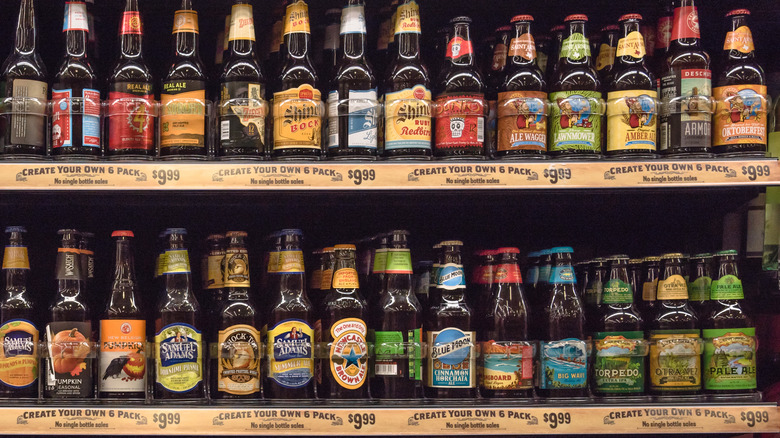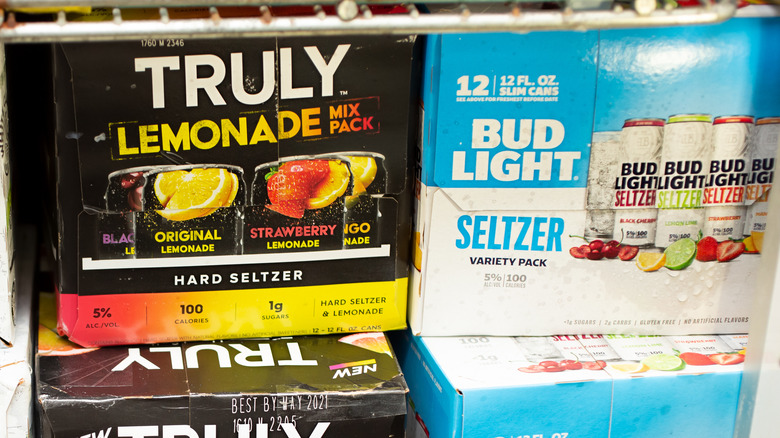The Real Reason Alcohol Doesn't Come With A Nutrition Label
Nutrition labels are everywhere, appearing on just about any food product that comes in a package. However, alcohol is one item that many people ingest regularly that does not include a nutrition label. The reason why is complicated, and it dates back almost one hundred years to prohibition, according to Forbes. When alcohol was legalized in 1933, the government made the Alcohol and Tobacco Tax and Trade Bureau responsible for regulating it. According to Eating Well, the main reason for giving the TTB regulatory responsibility came down to taxes. Nutrition Facts labels, which became required for food products in 1994, fall under the authority of the Food and Drug Administration. Since alcohol is not regulated by the FDA, manufacturers are not required to label any nutrition values. However, some health-related items must be listed on alcohol, and those include any substances, such as nitrates, that could cause sensitivities. In addition, distilled spirits and wines that contain 7% or more alcohol must include alcohol percentages.
Some alcohol products are required to have labels
Interestingly, wine with less than 7% alcohol and beer that does not contain malted barley actually fall under the jurisdiction of the FDA, so they are required to list the standard nutritional facts on labels, but not the alcohol content of the beverage, according to Vox. Furthermore, in 2013, the TTB made labeling nutrition facts, such as calorie counts, optional for manufacturers (via Eating Well). However, while nutrition labels would help consumers make healthy choices, many companies do not offer this information.
Many experts think labels are critical when it comes to health. Public-health researcher at Johns Hopkins Sara Bleich told Vox that most people don't know how many calories they consume from alcoholic drinks. "I really think that people have no idea that when they drink, they're taking in hundreds and hundreds of calories," she said, adding that nutritional information can make a significant difference when it comes to making healthy choices. Just remember, if you can't find the nutritional information you're looking for on the package, you can always find it on the internet.


